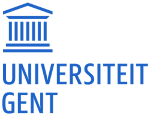Environmental heat stress induces epigenetic transgenerational inheritance of robustness in parthenogenetic Artemia model
.jpg) Published paper: Environmental heat stress induces epigenetic transgenerational inheritance of robustness in parthenogenetic Artemia model
Published paper: Environmental heat stress induces epigenetic transgenerational inheritance of robustness in parthenogenetic Artemia model
The previous conception was that the genotype was responsible for defining phenotypes of an organism. However, recent findings suggest that environmental factors are also contributing to the development of phenotypes. This phenomenon occurs without any alteration in the DNA sequence of an organism. This non-DNA based control of phenotypes, commonly termed as ‘epigenetic’, is caused by modifications at the level of histones and/or DNA.
If and how these phenotypes are inherited across generations is still debated. Most studies carried out so far on transgenerational epigenetic inheritance of (environmentally-induced) phenotypes failed to exclude parental effects, could not or did not demonstrate the heritability of traits across several generations, were not sufficiently replicated to distinguish stochastic effects from treatment or did not integrate phenotypic characterization with more detailed molecular and genetic analysis.
Selection of an appropriate animal model that allows to better delineate the contribution of epigenetics to the inheritance of acquired traits is of high importance. The apomictic parthenogenetic Artemia, an aquatic invertebrate, represents an exceptional model for studying transgenerational epigenetic inheritance. It has a short generation time and is able to parthenogenetically generate clonal offspring, a feature that minimizes genetic variability in the experiments. Moreover, this invertebrate produces dormant eggs (cysts), which allows for carrying out ‘common garden experiments’, i.e. the simultaneous testing of animals from subsequent generations - a convenient property if one seeks to minimize environmental interference in experiments.
In our study, by carrying out common garden experiments, we could provide clear evidence that, upon exposure to an environmental factor i.e. non-lethal heat shocks, a parental population of parthenogenetic (all female) Artemia (originating from one single female) experiences an increase in the:
1) levels of Hsp70 production,
2) tolerance towards lethal heat stress,
and 3) resistance against pathogenic V. campbellii.
Interestingly, these acquired phenotypic traits were transmitted to three successive generations, none of which was exposed to the parental stressor. This transgenerational inheritance of the acquired traits was associated with altered levels of global DNA methylation and acetylated histones H3 and H4 in the heat-shocked group compared to the control group, where both the parental and its successive generations were reared at standard temperature. These results indicate that epigenetic mechanisms, such as global DNA methylation and histones H3 and H4 acetylation have particular dynamics that are crucial in the heritability of the acquired adaptive phenotypic traits across generations.
You can read the paper here. Authors: Parisa Norouzitallab, Kartik Baruah, Michiel Vandegehuchte, Gilbert Van Stappen, Francesco Catania, Julie Vanden Bussche, Lynn Vanhaecke, Patrick Sorgeloos, and Peter Bossier.
